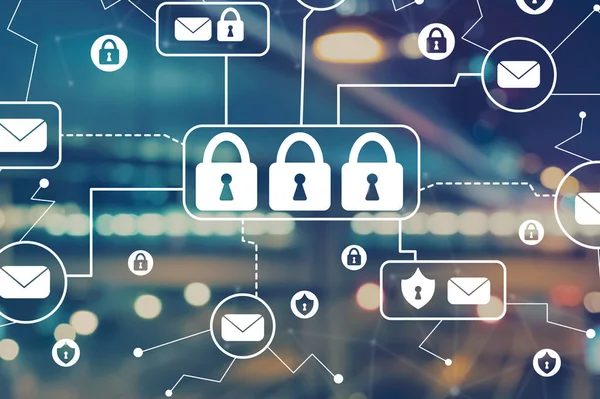Master Your Email Security: The DMARC Reporting Service Advantage
In an age dominated by digital communication, the security of our email systems is more critical than ever. The prevalence of sophisticated phishing attacks, identity theft, and email fraud underscores the need for robust measures to safeguard sensitive information. Enter the Domain-based Message Authentication, Reporting, and Conformance (DMARC) protocol – a powerful ally in the ongoing battle against email-based threats. In this exploration, we delve into the art of mastering email security, shining a spotlight on the unparalleled advantage offered by the DMARC Reporting Service.
Email has become the lifeblood of modern communication, connecting individuals, businesses, and organizations across the globe. However, this interconnectedness also exposes us to an array of cyber threats that seek to exploit vulnerabilities in our digital conversations. The DMARC Reporting Service emerges as a beacon of security, providing a nuanced and comprehensive approach to fortifying our email systems. As we navigate the intricate landscape of email security, understanding the strategic advantages bestowed by DMARC reporting becomes paramount for those looking to secure their digital communication channels effectively.
Understanding the Email Security Landscape
Email security is a paramount concern in today's interconnected world. Phishing attacks, spoofed emails, and other malicious activities can lead to data breaches, financial losses, and damage to an organization's reputation. Traditional security measures, such as firewalls and antivirus software, are essential but may not be sufficient to combat the evolving tactics employed by cybercriminals. See more about DMARC reporting service.
One effective approach to enhance email security is through the implementation of DMARC. DMARC is an email authentication protocol that helps ensure the legitimacy of emails by validating the sender's identity. It enables domain owners to specify how their emails should be authenticated and what actions should be taken if authentication fails. DMARC acts as a crucial layer of defense against domain spoofing and phishing attempts.

The Role of DMARC Reporting Service
While DMARC itself is a robust security measure, organizations can further strengthen their defenses by utilizing the DMARC Reporting Service. This service provides detailed insights into email authentication and delivery, offering valuable information that empowers organizations to fine-tune their email security strategy.
Aggregate Reports for Enhanced Visibility
The DMARC Reporting Service generates aggregate reports that provide a comprehensive overview of email authentication activity. These reports include data on successful and failed authentication attempts, allowing domain owners to identify potential threats and vulnerabilities. With this enhanced visibility, organizations can proactively address issues before they escalate into major security breaches.
Forensic Reports for In-Depth Analysis
In addition to aggregate reports, the DMARC Reporting Service offers forensic reports that provide a granular view of individual email messages. These reports include detailed information about the authentication process, allowing organizations to conduct in-depth analyses of suspicious emails. This level of detail is invaluable in identifying the sources of phishing attempts and unauthorized access, enabling organizations to take swift corrective action.
Proactive Threat Mitigation
Proactive threat mitigation is a cybersecurity strategy focused on identifying and addressing potential risks before they escalate into security breaches. Rather than reacting to incidents after they occur, organizations employing proactive measures, such as the DMARC Reporting Service, leverage real-time insights to anticipate and neutralize threats. By staying ahead of cyber threats, organizations can minimize the impact of attacks, safeguard sensitive information, and maintain the integrity of their digital infrastructure.

Implementing DMARC Reporting Service
- Define DMARC Policies: Initiate the implementation process by defining DMARC policies that align with your organization's security requirements. Options include "none," "quarantine," or "reject" to specify the desired actions for unauthenticated emails.
- Specify Reporting Addresses: Designate reporting addresses where DMARC reports will be sent. Organizations can choose internal email addresses or opt for third-party DMARC reporting services for efficient and streamlined reporting.
- Gradual Transition: Start with a monitoring phase, using a "none" policy, to observe and analyze email authentication activity. Gradually transition to more secure policies, such as "quarantine" and eventually "reject," as confidence in the authentication process grows.
- Technical Implementation: Collaborate with IT and email administrators to implement DMARC within the email infrastructure. This may involve adjustments to DNS records and email servers to ensure proper authentication and reporting.
- Monitoring and Analysis: Regularly review DMARC aggregate and forensic reports to gain insights into email authentication successes and failures. Analyze these reports to identify potential threats, unauthorized activities, or phishing attempts.
- Adapt Based on Insights: Use the information gathered from DMARC reports to fine-tune and adapt email security policies. This iterative process allows organizations to continuously enhance their defenses against evolving cyber threats.
The Advantages of DMARC Reporting Service
The DMARC Reporting Service offers several key advantages that contribute to a more resilient and secure email environment:
Proactive Threat Mitigation
By leveraging the insights provided by DMARC reports, organizations can proactively identify and mitigate potential threats before they impact their email infrastructure. This proactive approach is essential in the ever-evolving landscape of cyber threats, where timely action can make the difference between a successful defense and a security breach.
Improved Email Deliverability
Implementing DMARC, along with the reporting service, can positively impact email deliverability. Email service providers often prioritize authenticated emails, leading to a better sender reputation and increased chances of emails reaching the recipients' inboxes. This improvement in deliverability is particularly crucial for organizations relying on email communication for business-critical functions.
Enhanced Brand Protection
Phishing attacks often involve the unauthorized use of a brand's identity to deceive recipients. DMARC, coupled with reporting services, helps organizations identify and mitigate such attempts promptly. By safeguarding their brand identity, organizations can maintain the trust of their customers and stakeholders.

